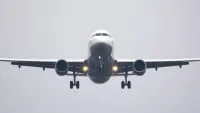
Learn Aviation Meteorology 
This course provides an introduction to Aviation Meteorology. Learn the fundamentals of Aviation Meteorology, improve your understanding of meteorologists' deductions, documentation, and in-flight hazards. Through online learning and skill training, you will gain the knowledge and skills necessary to understand and interpret aviation weather. This course is ideal for anyone interested in aviation weather and safety. ▼
ADVERTISEMENT
Course Feature
![]() Cost:
Cost:
Free
![]() Provider:
Provider:
Udemy
![]() Certificate:
Certificate:
No Information
![]() Language:
Language:
English
Course Overview
❗The content presented here is sourced directly from Udemy platform. For comprehensive course details, including enrollment information, simply click on the 'Go to class' link on our website.
Updated in [May 25th, 2023]
This course provides an overview of Aviation Meteorology, covering the fundamentals of meteorology and its application to aviation. Learners will gain an understanding of meteorologists' deductions and documentation, as well as an understanding of in-flight hazards. Through this course, learners will be able to improve their knowledge of meteorology and its application to aviation. The course will also provide an understanding of the various meteorological phenomena that can affect aircraft operations.
[Applications]
After completing this course, students should be able to apply their knowledge of Aviation Meteorology to their daily lives. They should be able to better understand the weather conditions that affect their flights, as well as the documentation and deductions made by meteorologists. Additionally, they should be able to identify in-flight hazards and take the necessary precautions to ensure a safe flight.
[Career Paths]
1. Aviation Meteorologist: Aviation meteorologists are responsible for providing accurate and timely weather forecasts and advisories to pilots and air traffic controllers. They use a variety of tools and techniques to monitor and predict weather conditions, and they must be able to communicate their findings clearly and concisely. As the aviation industry continues to grow, the demand for qualified aviation meteorologists is expected to increase.
2. Air Traffic Controller: Air traffic controllers are responsible for ensuring the safe and efficient flow of air traffic. They use a variety of tools and techniques to monitor and direct aircraft, and they must be able to make quick decisions in order to ensure the safety of all aircraft in the airspace. As the aviation industry continues to grow, the demand for qualified air traffic controllers is expected to increase.
3. Aviation Safety Officer: Aviation safety officers are responsible for ensuring the safety of aircraft and passengers. They use a variety of tools and techniques to monitor and investigate safety issues, and they must be able to identify and address potential hazards. As the aviation industry continues to grow, the demand for qualified aviation safety officers is expected to increase.
4. Aviation Maintenance Technician: Aviation maintenance technicians are responsible for maintaining and repairing aircraft. They use a variety of tools and techniques to inspect, diagnose, and repair aircraft, and they must be able to identify and address potential problems. As the aviation industry continues to grow, the demand for qualified aviation maintenance technicians is expected to increase.
[Education Paths]
1. Bachelor of Science in Meteorology: This degree program provides students with a comprehensive understanding of the science of meteorology, including the physical processes of the atmosphere, the dynamics of weather systems, and the application of meteorological data to aviation operations. Students will also learn about the development of forecasting models, the use of satellite imagery, and the application of meteorological data to aviation operations. This degree program is ideal for those interested in a career in aviation meteorology, as it provides the necessary skills and knowledge to become a successful meteorologist.
2. Master of Science in Aviation Meteorology: This degree program provides students with an advanced understanding of the science of aviation meteorology, including the physical processes of the atmosphere, the dynamics of weather systems, and the application of meteorological data to aviation operations. Students will also learn about the development of forecasting models, the use of satellite imagery, and the application of meteorological data to aviation operations. This degree program is ideal for those interested in a career in aviation meteorology, as it provides the necessary skills and knowledge to become a successful meteorologist.
3. Doctor of Philosophy in Aviation Meteorology: This degree program provides students with an in-depth understanding of the science of aviation meteorology, including the physical processes of the atmosphere, the dynamics of weather systems, and the application of meteorological data to aviation operations. Students will also learn about the development of forecasting models, the use of satellite imagery, and the application of meteorological data to aviation operations. This degree program is ideal for those interested in a career in aviation meteorology, as it provides the necessary skills and knowledge to become a successful meteorologist.
4. Certificate in Aviation Meteorology: This certificate program provides students with a basic understanding of the science of aviation meteorology, including the physical processes of the atmosphere, the dynamics of weather systems, and the application of meteorological data to aviation operations. Students will also learn about the development of forecasting models, the use of satellite imagery, and the application of meteorological data to aviation operations. This certificate program is ideal for those interested in a career in aviation meteorology, as it provides the necessary skills and knowledge to become a successful meteorologist.
The demand for meteorologists is increasing as the aviation industry continues to grow. With the advancement of technology, meteorologists are now able to provide more accurate forecasts and predictions, which is essential for the safety of pilots and passengers. As such, the demand for meteorologists with advanced degrees is expected to continue to grow in the coming years.
Course Syllabus
The Atmosphere
Atmospheric Pressure
Density
Pressure Systems
Altimetry
Temperature
Humidity
Turbulence
Pros & Cons

Needed for career.

Interesting and explanatory.

Good information.

Well detailed and written.

Enjoyable research data and statistics.

Poor explanations.

No diagrams or images.

Voice simply read slides.

Could be more interesting.
Course Provider

Provider Udemy's Stats at AZClass
Discussion and Reviews
0.0 (Based on 0 reviews)
Explore Similar Online Courses

Storytelling 101: Character Conflict Context & Craft

Establishing Product-Market Fit

Python for Informatics: Exploring Information

Social Network Analysis

Introduction to Systematic Review and Meta-Analysis

The Analytics Edge

DCO042 - Python For Informatics

Causal Diagrams: Draw Your Assumptions Before Your Conclusions

Whole genome sequencing of bacterial genomes - tools and applications

How to become a commercial pilot

Ultimate Guide to Becoming a Pilot

How To Become a Pilot
 Related Categories
Related Categories
Quiz
 Submitted Sucessfully
Submitted Sucessfully
1. What is the main purpose of Aviation Meteorology?
2. What is the main focus of Aviation Meteorology?
3. What is the goal of Aviation Meteorology?


Start your review of Learn Aviation Meteorology